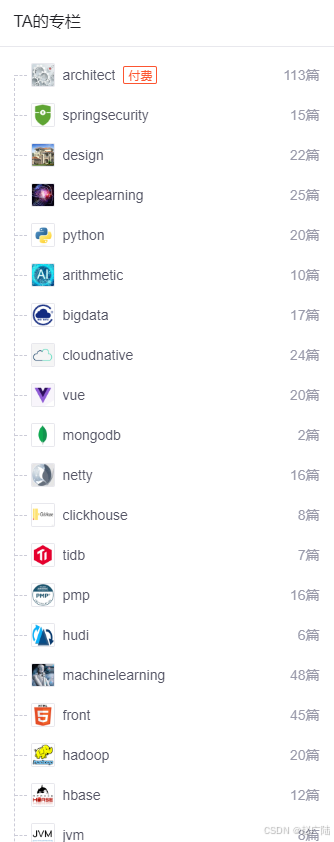在SpringBoot应用开发中,处理Http请求是一项基础且重要的任务。Spring Boot通过提供一系列丰富的注解极大地简化了这一过程,使得定义请求处理器和路由变得更加直观与便捷。这些注解不仅帮助开发者清晰地定义不同类型的HTTP请求如何被处理,同时也提升了代码的可读性和维护性。
一、@RequestMapping
@RequestMapping用于将特定的HTTP请求映射到特定的方法上。可用于类级别和方法级别上,以下是代码示例。
java">@RestController
@RequestMapping("/customer-api/") // 类级别,所有方法都以customer-api开头
public class CustomerApi{@RequestMapping(value = "/get-customer-by-id", method = RequestMethod.GET){ // 方法级别,当收到对/customer-api/get-customer-by-id路径的GET请求时,会调用getCustomerById方法。Response<Customer> getCustomerById(@RequestParam("id") Integer id)……}
}
本节示例中@RestController和@RequestParam注解可以先忽略,下面会介绍到。
二、PutMapping、DeleteMapping、GetMapping和PostMapping
为了更加明确表示不同的HTTP方法,Spring Boot提供了一组特定的注解,分别对应PUT, DELETE、GET、POST(增删改查)请求。
java">@RestController
@RequestMapping("/customer-api/")
public class CustomerApi{@PutMapping("/add-customer") // 增加的请求,和@RequestMapping的PUT方式等价Response<?> addCustomer(@RequestBody Customer customer)……}@DeleteMapping("/delete-customer-by-id") // 删除的请求,和@RequestMapping的DELETE方式等价Response<?> deleteCustomer(@RequestParam("id") Integer id)……}@PostMapping("/update-customer") // 更新的请求,和@RequestMapping的POST方式等价Response<?> updateCustomer(@RequestBody Customer customer)……}// @RequestMapping(value = "/get-customer-by-id", method = RequestMethod.GET) // 方式1@GetMapping("/get-customer-by-id") // 和方式1是等价的。Response<Customer> getCustomerById(@RequestParam("id") Integer id)……}
}
三、@RequestParam和@PathVariable
- @RequestParam用于获取查询参数
- @PathVariable用于获取路径变量
java">@GetMapping("/get-customer-by-id"){ Response<Customer> getCustomerById(@RequestParam("id") Integer id) // @RequestParam就可获取请求路径/get-customer-by-id?id=1中的id的值……}@GetMapping("/get-customer/{id}"){ Response<Customer> getCustomerById(@PathVariable("id") Integer id) // @PathVariable可获取路径/get-customer/{id}中的id的值……}
四、@RequestBody
@RequestBody注解用于将 HTTP 请求的主体内容绑定到方法的参数上。通常用于处理 POST 和 PUT 请求,当请求的主体是 JSON 或 XML 格式的数据时非常有用。
示例见第二节,这里就不重复赘述了。
五、@RestController和Controller
@RestController和@Controller都是用于定义控制器类的注解,但是两者之间有细微的差异。
@RestController是一个组合注解,相当于@Controller和@ResponseBody。 用@RestController标注的API类,其中的方法会直接返回数据(如JSON、XML),不会返回视图。
@Controller刚好相反,它标注的类中的方法会直接返回视图(如JSP、Thymeleaf模版等)。
- 小结:现在的微服务项目基本都是前后端分离,所以@Controller已经慢慢的淡出了视野,很少使用,而@RestController已然成为了主流。
后面有时间了在聊聊GET和POST请求的区别,大厂面试被问到的频次贼高。






